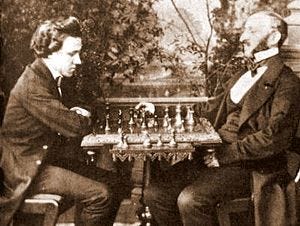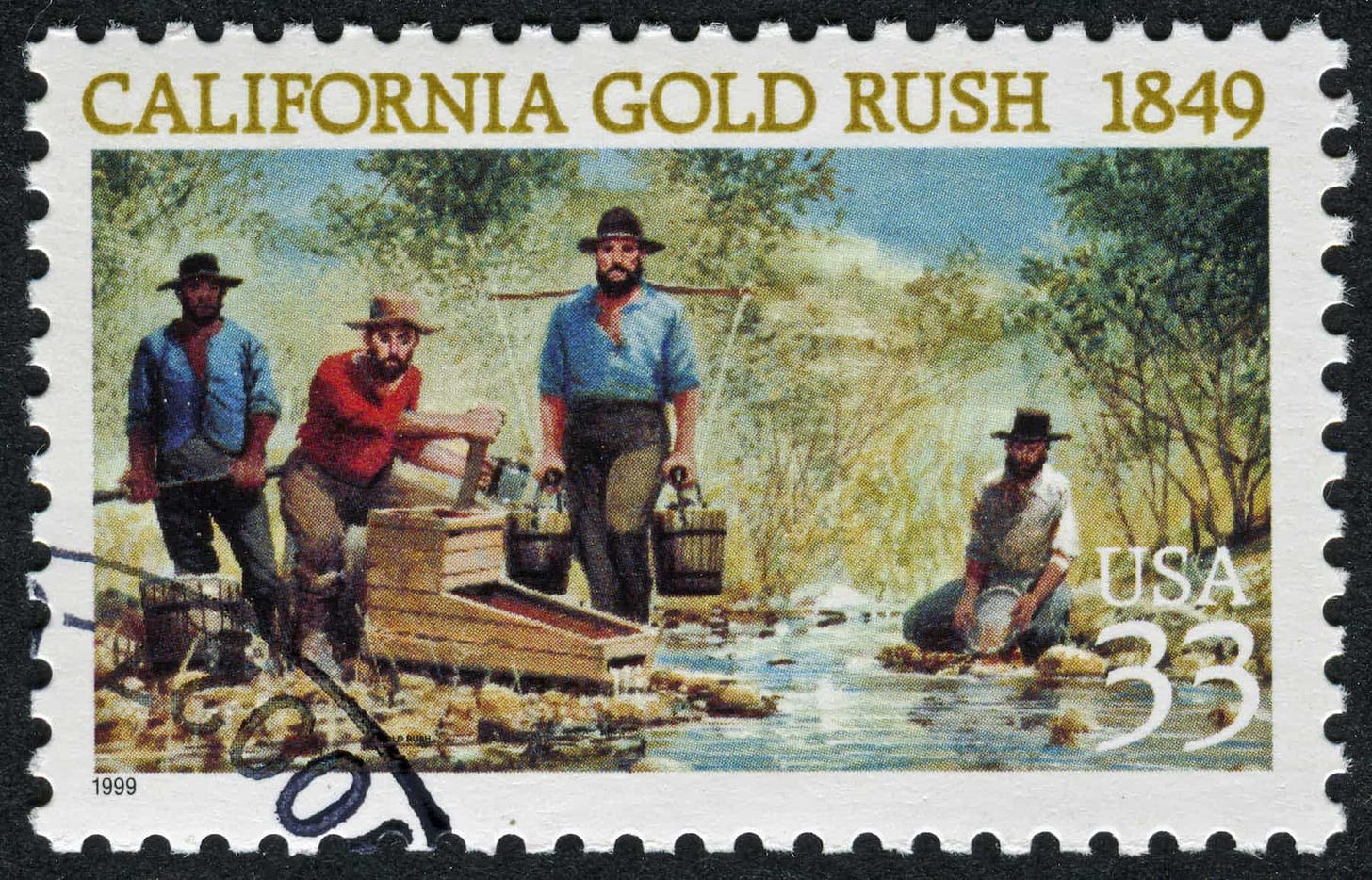This is not a post about AI.
No shortage of those these days, and plenty better placed than me to write them.
No, this is a post about you.
Well… you, and a 19th century chess prodigy.
Pleased to report I’m back from my newsletter sabbatical. 🚀🚀
I hope you’ve managed ok in my absence. I imagine Sunday mornings haven’t quite been the same.
If you’re reading this but haven’t subscribed you can do here:
Paul
The next technological leap is upon us. The age of AI.
FOMO’s in the air.
What is one to do?
You could do worse than taking a leaf from Paul Morphy’s book.
I imagine you haven’t heard of Morphy. I certainly hadn’t until last week. Allow me to introduce him.
Paul Morphy was a chess prodigy.
By 21, in 1858, he was the best player on the planet. What concerns us here, however, is what he did to the game.
Chess is thousands of years old.
Prior to Morphy, people played it the same way everywhere. A style called Combinational Chess. It’s likely how you and I play.
There’s a finite number of moves in the game. Combinational Chess is trying to think a number of moves ahead. If I do this, then they’ll do this etc. You’re trying to predict what your opponent will do.
Morphy took a different approach.
The idea is simple.
Rather than try to predict what your opponent will do, you instead focus on your position. On setting up your board to handle whatever comes. From there you can defend attacks and capitalise on mistakes.
This approach, later called Positional Chess, is now the default amongst the World’s best.
Perhaps you’re wondering why this is relevant. Chess styles in the 1800s might not have been your first choice of reading topics today.
What I’m suggesting is to focus on your position.
Time
I don’t know where AI goes next. You, I’m sorry, don’t know either.
Even Sam Altman, CEO of Open AI, doesn’t know. (a great interview here)
And it’s a rapidly changing landscape.
What you can do is focus on your position.
Your health, balance of mind, personal finances, the people in your life, how you spend your time even. Focus there.
If any one of those things are off it effects everything you do.
The same is true of startups. Without a doubt AI will dramatically improve productivity. But it’s ok if you haven’t implemented the thousands of Linkedin AI-tips-to-supercharge-your-business.
Doing great work takes time. Sometimes that means saying no or being slow to shiny new things. And that’s ok.
Gold Rush
Many have quit everything for the new gold rush. And there’s no judgement from me. It’s a wonderful space to be joining.
But, this is a message for those who haven’t. Those who, perhaps, are feeling the FOMO. What if I miss the boat.
Focus on your position.
Keep improving that. And all the benefits of this new gold rush will filter through when the time is right.
You have more time than you think. 🙏
— —
My Week in Books📚
The Status Game by Will Storr
Super insightful. We’re all playing status games. Even you. A well put together case by Storr.
I feel I’ve been reading too many idea books recently. More Biographies on the reading list going forward.
A Final Thought 💡
“If you cannot find peace within yourself, you will never find it anywhere else.”
- Marvin Gaye.






Welcome back, love to see your name back in my inbox 💌
Great read! Really pleased to see you writing again pal 👏🏽